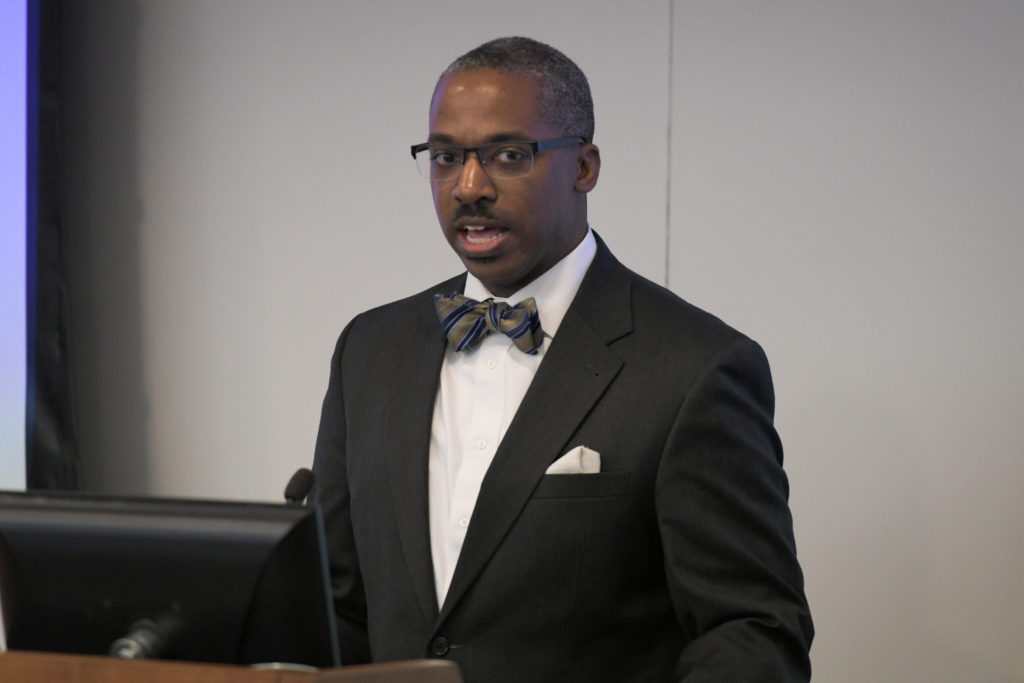When Reuben Brigety started as the dean of the Elliott School of International Affairs in 2015, he came in with plans to help students become better leaders and confront tough decisions both at school and in their careers.
About three years later, Brigety oversaw the launch of the school’s Leadership, Ethics and Practice Initiative, a program that aims to help students confront ethical challenges, and a new speaker series called “Why Ethics Matter.” He also spearheaded the creation of a new course last year called First Year Experience, where first-year students learn how to identify and deal with ethical issues.
Now, Brigety said officials are working to hire a new professor of ethics and international affairs to help expand ethics-related courses in the undergraduate curriculum this fall. He said officials are in the “early” stages of planning ways to make ethics a “larger” component in the school, like adding more courses and potentially developing a concentration by the fall of 2020.
Officials and experts said building the Elliott School’s ethics curriculum will help students make difficult decisions about foreign policy, business strategies and human rights when they enter careers in international relations.
“Students will also need to put an ethical frame to any challenge that they see in the field,” Brigety said in an interview last week. “So we want to make sure we prepare our students to do that, so they know what doing the right thing feels like in ambiguous situations.”
He said the possible curriculum changes are currently being considered by the school’s officials. The Elliott School offers two classes centered on ethics that international affairs majors can apply toward their major.
“We’ve seen intuitively that the right way is to infuse ethics into everything we do,” he said. “The challenge with that is that the vast majority of our professors are not trained as ethicists.”
Several institutions with similarly ranked undergraduate international affairs programs also incorporate ethics into their curricula. American University’s School of International Service allows undergraduates to specialize in ethics through its Justice, Ethics and Human Rights Thematic Area program, while Princeton University’s Woodrow Wilson School of Public and International Affairs requires students to take a semester-long class on ethics.
International affairs experts said prioritizing ethics helps prepare students to make challenging decisions in sectors like criminal justice and human rights after they obtain an international affairs degree.
Brandice Canes-Wrone, the vice dean of Princeton University’s Woodrow Wilson School of Public and International Affairs, said students should be familiar with various ethical systems that help explain when a decision is fair because each system could be applicable to different situations.
“It is tempting to think that the right option is obvious; but as we know, over history, many societies and individuals have defined what is right to be what is convenient for their self-interest,” she said in an email.
Canes-Wrone said students who wish to become policymakers need to have a “foundation in the ethical tradeoffs” of possible responses to complex global issues so that they do not have to familiarize themselves with issues “on the spot.”
Rosemary Shinko, the assistant dean for undergraduate education at American University’s School of International Service, said ethics dictate how military force and security policy are used, so incorporating ethics into the curriculum helps students gain practical decision-making skills.
“Ethics are key to determining the instances of just war or armed conflict,” Shinko said. “Students have to learn when the use of armed force is justified.”
Shinko said students with an undergraduate background in ethics are better suited for careers in diplomacy and human rights because they have knowledge of the ethical dilemmas taking place in specific regions of the world.
“We weave together the more abstract philosophical and moral aspects of ethics and human rights with coverage of the debates and conflicts involving them in various parts of the world,” she said.





